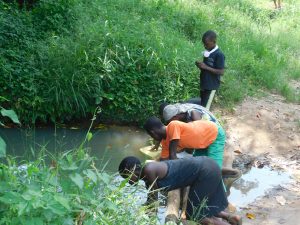On March 24, we highlight World Tuberculosis Day to bring attention to the TB epidemic’s devastating health, economic, and social consequences and to step up efforts to end it. Robert Koch announced in 1882 that he had discovered the bacteria that causes tuberculosis, which led to the diagnosis and treatment of this disease.
Numbers
TB is the number 4 cause of death among communicable, maternal neonatal, and nutritional diseases. There is an estimated increase in the number of people who develop TB (90,000). Among them 12,000 were children. 7,400 people died because of TB.
Uganda is ranked among 20 countries worldwide with the highest TB infection burden. According to a health official, 3,646 TB cases couldn’t be diagnosed last year in the Lango sub-region, which is among the three sub-regions with the highest burden of TB infections.
World TB Day aims to raise awareness about TB in the Lango sub-region, which is among the three regions of the country with the highest burden, making TB a public health problem in Uganda, and that is why the Lango sub-region will be hosting the event.
Covid-19 negatively impacted the fight against TB in Uganda, since a lot occurred in between.
As a result of all the restrictions put in place with Covid-19, we missed diagnosing 10,739 TB cases from January to December 2020, meaning these people are at large infecting others in the community.
Uganda and the rest of the world are preparing to celebrate world Tuberculosis Day (TB) on March 24, 2022, and Lira City has been selected to host the affair.
TB remains one of the deadliest infectious diseases in the world. Each day, more than 4100 people die from TB and over 28,000 people become ill with this preventable and curable disease. Approximately 66 million lives have been saved through global efforts to combat TB since 2000. Although decades of progress have been made in the fight against TB, the COVID-19 pandemic has reversed those gains. In 2020, TB deaths increased for the first time in over a decade.
Invest to End TB. Save Lives. World TB Day 2022 stresses increasing resources to fight TB and achieve the commitment made by global leaders in order to end TB. Ensure equitable access to prevention and care in line with WHO’s drive to attain Universal Health Coverage, especially in the context of the COVID-19 pandemic that threatens the progress towards End TB.
Millions of more lives will be saved if more investment is made, accelerating the end of the TB epidemic.
According to World Health Organization, 66,000,000 lives saved since 2000 by global efforts to end TB. 9,900,000 people fell ill with TB in 2020 and 1,500,000 people died of TB in 20202.
Call for action.
- Know the causes, symptoms, and preventive measures of TB.
- Get tested, get treated, and follow your doctor’s advice if you think you have TB
- Don’t believe in myths or misinformation
- Stand up against TB stigma and discrimination
- Invest in resources, support, care, and information to defeat TB.
- Engage young people in TB advocacy.
- Provide resources, advice, and support to TB patients in the community.
- Promote the provision of high-quality essential TB services during the COVID pandemic;
- Integrate TB into routine health interventions;
- Provide compassionate care that respects human rights and is stigma-free;
- Make sure you are trained and have the latest guidance on TB treatment and care available to you




